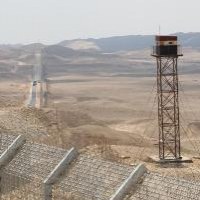![]()
Sun, March 13, 2011 | The Rubin Report | By Barry Rubin
U.S. Middle East Policy and Those Little Ideas That Get Millions of People Killed
I listened again to President Barack Obama’s main speech on Egypt back during the revolution and two phrases caught my ear. They were both intended, perhaps, as bland phrases yet they carry an awesome amount of meaning.
The first was this: “Suppressing ideas never make them go away.”
At first glance, who could object to that? But a little thought gives us another way of viewing that concept. In a thoroughgoing, stable democratic state good ideas are believed to defeat bad ones. Yet in other political systems — even in democratic ones (see Weimar Republic, Germany, 1932) — bad ideas can seize state power if not suppressed.
Arguably, this fits the phrase since the ideas are not suppressed as ideas. Instead, they take power, fail, and then go away. What’s the difference? Millions of people are dead over decades of time.
So it is better to suppress a bad political ideology — to keep it from getting control of a state — than to believe that one must compromise or yield to it. Suppose, for example, the shah had suppressed the idea of Islamism in the Iran of 1978. Ayatollah Ruhollah Khomeini would never have taken power.
In that situation, what would we be saying today? Islamism would still exist underground, Iranian students abroad would be protesting against the shah’s son who would be on the throne. The monarchy would be using repression. And we could — wrongly — say,
“Suppressing ideas never make them go away.”
The question isn’t whether ideas exist, the important issue is whether they seize state power, govern millions of people, and wage war on their neighbors.
We have another historic example of this problem in the Middle East: Pan-Arab nationalism. From the time it seized control of Egypt to the time it fell from power, Arab nationalism (as we usually call it) was in power in Cairo for 60 years. It ruled Iraq for 45 years. It is still in power in Syria. Many wars and much suffering resulted. Suppressing that idea — if it had been possible, though it probably wasn’t — would have been better than trying it out.
For a college professor to say that suppressing ideas doesn’t make them disappear — somewhat equivalent to saying that cheaters never prosper — is harmless. For a president to say that kind of thing is dangerous. After all, the bottom line is that you cannot defeat bad ideas (or movements based on them) by the use of power but only by what? Appeasing it by letting it do whatever it wants? Letting it participate in elections and losing? Letting it take power and inevitably becoming more moderate? Letting it take power and failing? Proving through argument that it is wrong?
And remember: precisely what Obama has failed to do is to argue against revolutionary Islamism, which merely leaves the other options, doesn’t it?
The other statement was:
“The future of Egypt will be determined by the Egyptian people.”
This is also a nice phrase but it makes for bad assessment. One might almost think that the president of the United States had absolutely no experience in international affairs! The idea expressed here is that the people are going to decide (presumably through free elections) and get what they want. There is an underlying assumption that they will choose something moderate. Muhammad, the founder of Islam, himself said that his Islamic community would not agree on error, while in the Western tradition philosophers spoke of the “voice of the people” as sacred.
But what if “the people,” that is most of the 85 percent or so who are Muslim, determine that they want to persecute the Christians, or go to war with Israel, or chase Western interests out of the Middle East, or impose Sharia law? One can say that this is their “right” but at least the idea of popular sovereignty being some cure-all does disappear.
The old phrase so often used beneficially to benefit a free society — I may disagree with what you say but I will defend to the death your right to say it — becomes something rather different: I may disagree with what you say but I will defend your right to use it to put me to death.
I’m reminded of Senator Stephen Douglas’s idea of “popular sovereignty” as a way out of the deadlock on slavery before the Civil War. In 1854 Congress passed a law that the people of Kansas would decide on whether that would be a free or slave state. The result was a bloody civil war between the two factions.
And, of course, if the “people” had determined that Kansas should be a slave state — and eventually the slavery forces had enough support in Congress to block abolition and maintain slavery for a long time — that would not seem to be a great result in retrospect.
We now know that in the late 1940s, U.S. policy covertly worked hard to make sure that the Communists did not win elections in France and Italy during the early Cold War. Should America apologize for that unfair intervention in the democratic processes of other countries? Absolutely not.
How about if, at the time, President Harry Truman, a Democrat, had said instead: We have no objection to the Communists participating in government as long as they didn’t use violence. Where would that have led?
That doesn’t mean by any means that democracy or elections is a bad thing. But it does mean that we should be rather skeptical about situations where there are large, well-organized, and popular totalitarian forces seeking to take advantage of the situation.
There is another way to approach that statement about “The future of Egypt” being “determined by the Egyptian people.” Revolutionary movements are not usually based on the sovereignty of the masses but on the actions of organized, determined groups. We know that the Bolshevik Revolution was made by a minority and arguably so was the American Revolution.
These statements from Obama emerge from a wonderful American tradition of democratic affirmation, most truly captured in the poetry of Walt Whitman and Carl Sandburg. In, “The People Yes” Sandburg wrote:
“The people yes
The people will live on.
The learning and blundering people will live on.
They will be tricked and sold and again sold
And go back to the nourishing earth for rootholds,”
In the end, they will emerge triumphant. This kind of thinking has made America great. But it is not a good guide for setting Middle East policy.
This does not mean that the United States controls everything — it doesn’t. But one doesn’t have to think very hard to recall that U.S. policy under the previous president supported the participation of Hamas in Palestinian elections despite the fact that it didn’t accept the Oslo agreement on which the election was based. Once in power, Hamas than tore up the Israel-Palestinian agreement of 1993 which was the basis of the Palestinians running the Gaza Strip in the first place.
Incidentally, that’s an example of an Israel-Arab agreement in which Israel yielded territory and then was abrogated after an election. Make a note of that regarding the future of the Egypt-Israel peace treaty, something we keep being told could never happen.
About the author,
Barry Rubin is Director of the Global Research in International Affairs (GLORIA) Center and editor of the Middle East Review of International Affairs (MERIA) Journal. His books include Islamic Fundamentalists in Egyptian Politics and The Muslim Brotherhood (Palgrave-Macmillan); and The Long War for Freedom: The Arab Struggle for Democracy in the Middle East, a study of Arab reform movements (Wiley). GLORIA Center site: http://www.gloria-center.org His blog, Rubin Reports, http://www.rubinreports.blogspot.com.



 RSS
RSS












U.S. Middle East Policy and Those Little Ideas That Get Millions of People Killed | #jcot #tcot #Israel #Egypt http://j.mp/fkawm0